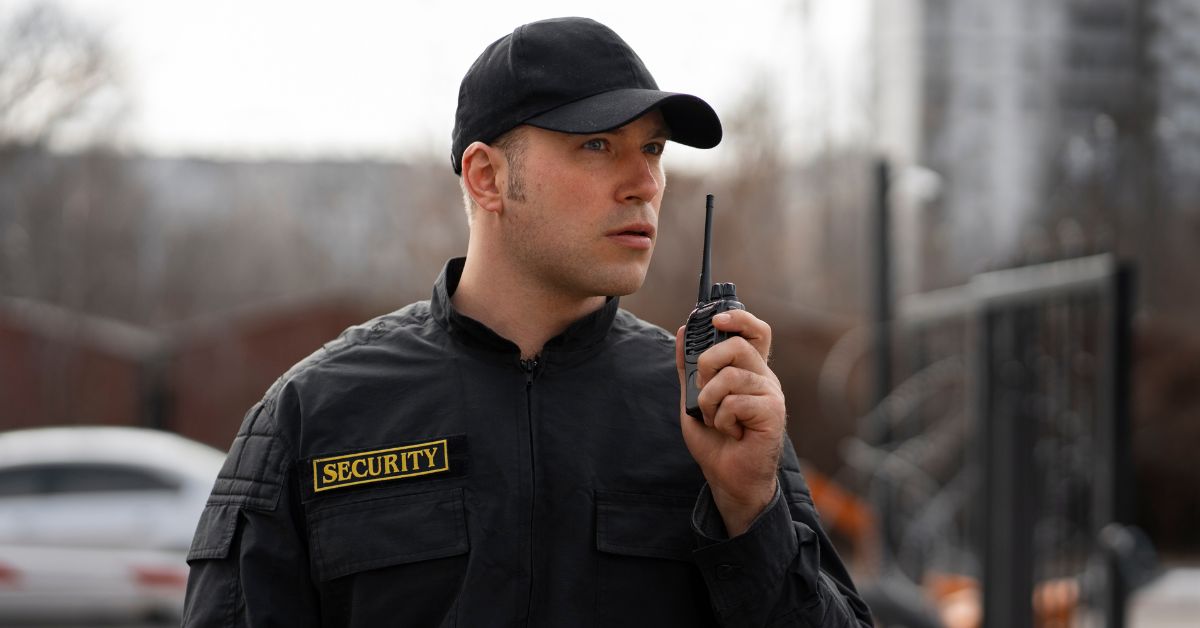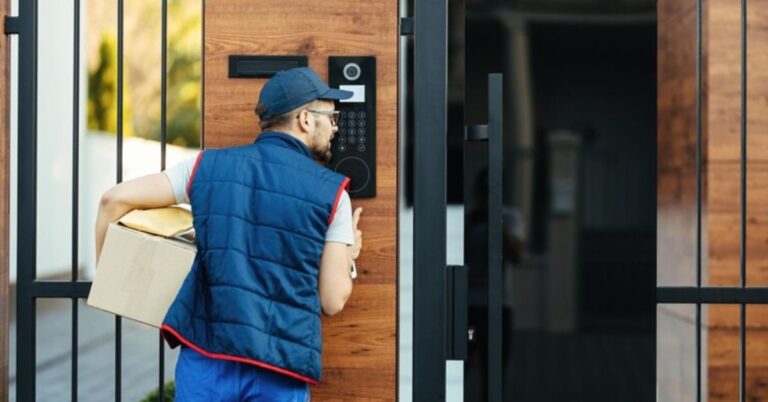7 Common Security Mistakes Businesses Make and How Guards Help Fix Them

Security is the silent backbone of every business. It rarely receives praise, yet its absence leads to chaos. Many organisations underestimate the importance of having proper security protocols. They focus on profits, clients, and innovation. Meanwhile, gaps in protection grow wide open. These gaps become opportunities for theft, loss, and disaster.
Enter the unsung hero—the security guard. Clad in uniform and responsibility, the guard steps in where automation fails. Eyes on every corner, ears tuned for whispers of trouble, and feet ready to chase danger away.
Below, we explore 7 common mistakes you should avoid while looking for security guards for hire. More importantly, we show how trained security guards become the solution.
1. Neglecting the Frontline: No Visible Security Presence
Many businesses treat security like a fire extinguisher, hidden in a corner and only touched during emergencies. This mindset leaves businesses vulnerable. Without visible guards at entrances or exits, criminals feel emboldened.
Intruders observe, then act. Shoplifters slide merchandise under jackets. Unauthorised visitors slip past reception desks. The threat multiplies when no one seems to be watching.
Security guards flip this script. Their presence creates a psychological barrier. A uniform at the door screams vigilance. It declares, “This business is guarded.”
2. Overreliance on Cameras and Tech Tools
Surveillance cameras are brilliant. Motion sensors, facial recognition, alarm systems—all flashy tools. But these gadgets don’t make judgment calls. They don’t chase shoplifters. They don’t escort rowdy patrons out the door. They merely observe, record, and sometimes beep.
Many business owners assume cameras are enough. But what happens when the footage goes unwatched? What if the alarm malfunctions? Who responds when the system flags a threat?
Security guards breathe life into surveillance. They monitor the cameras in real time. They investigate strange noises and assess situations that machines misread. Technology is a tool, not a guardian. Guards, on the other hand, are guardians.
3. Poor Access Control
Doors swing open, visitors wander freely, and deliveries pile up in corridors. Without strict access control, chaos brews. Former employees, thieves, competitors, or even angry customers with grudges could enter the premises.
Many businesses underestimate this need for gatekeeping. They think, “Everyone looks trustworthy.” That assumption ends in disaster.
Security guards take control of entrances and exits. They check ID badges, log visitors, and screen bags. They also act as filters, ensuring only authorised individuals enter restricted zones.
No keycard? No entry. No appointment? No access. Guards become the gatekeepers and defend your fortress.
4. Lack of Emergency Preparedness
Fire drills? Rare. Evacuation plans? Dusty. Panic buttons? Hidden or broken.
When emergencies strike, unprepared businesses collapse into confusion. Staff scatter, managers freeze, and customers panic. Say, a fire erupts, and fights break out. Alarms sound. Without a trained response team at the site, a small spark becomes an inferno.
But security guards are trained for chaos. They remain calm, direct people to safety, and administer first aid. If necessary, they also call emergency services. In many cases, they become the first responders. While others panic, guards take charge. Their presence can turn catastrophe into control.
5. Failing to Monitor Blind Spots
Cameras have angles but doors often block views. Shelves create hiding spots, where trouble can bloom undetected. These dead zones become havens for misconduct. Shoplifters hide there. Staff sneak breaks there. Vandalism begins there.
One of the reasons for these consequences is that business owners trust technology too much. They believe nothing escapes the lens. But shadows deceive.
Guards, on the other hand, patrol. They walk, listen, and watch from every angle. Their feet cover what cameras cannot. Their presence in blind spots erases opportunity for wrongdoing. Guards light up the shadows, so trouble cannot hide.
6. Ignoring Insider Threats
Most businesses fear outsiders. They forget the danger within. A dishonest employee with access to stockrooms or data servers poses a serious threat. Internal theft is more common than many admit. Trust becomes a double-edged sword.
Management often hesitates to question their own. That hesitation costs dearly. Examples include:
- Missing items
- Data breaches
- Cash shortfalls.
Security guards are trained to spot subtle signs. They notice unusual patterns and monitor employee behaviour without bias. Plus, they conduct bag checks, review surveillance logs, and offer neutral presence to add a layer of accountability.
Guards prevent trust from becoming a loophole.
7. No Custom Security Strategy
Many businesses adopt a one-size-fits-all approach. They copy what their competitor does, use a standard checklist, and assume all threats look the same. But a jewellery store needs different security than a warehouse. A nightclub requires different precautions than a clinic. Without tailoring security to specific risks, gaps form and criminals intrude through these gaps.
That is why professional security guards help customise protection. They assess risks, suggest improvements, and adapt to the setting. This provides great flexibility and amplified security.
Final Thoughts
Security is not a luxury. It’s a basic need.
The modern world breeds creativity in crime. So, businesses must evolve their defences and identify mistakes before intruders exploit them. And security guards stand on the frontline in this mission. They provide presence, response, and peace of mind.
If you’d like to explore such protection, we recommend you contact the experts at Velox Security. They will fix what automation cannot, fill the gaps that systems overlook, and use their instincts to protect. So, call them today and book a consultation.
Good luck!






